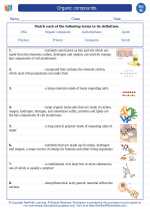The Water Cycle
The water cycle, also known as the hydrologic cycle, describes the continuous movement of water on, above, and below the surface of the Earth. This cycle is crucial for the existence of life on Earth and involves several key processes.
Processes of the Water Cycle
- Evaporation: The process by which water from the Earth's surface, such as oceans, rivers, and lakes, turns into water vapor due to heat from the sun.
- Condensation: The cooling of water vapor in the atmosphere, leading to the formation of clouds.
- Precipitation: When water droplets in clouds become heavy enough, they fall to the Earth's surface as rain, snow, sleet, or hail.
- Runoff: The flow of water on the Earth's surface into rivers, lakes, and oceans, often carrying with it sediments and other materials.
- Transpiration: The release of water vapor from plants into the atmosphere through small openings in their leaves.
- Infiltration: The process by which water seeps into the soil and becomes groundwater.
Importance of the Water Cycle
The water cycle is essential for sustaining life on Earth. It helps maintain a balance of water in different reservoirs, provides freshwater for plants and animals, and influences weather patterns and climate. Additionally, it plays a crucial role in shaping the Earth's surface through erosion and deposition.
Human Impact on the Water Cycle
Human activities, such as deforestation, urbanization, and pollution, can significantly impact the water cycle. These impacts can alter the natural flow of water, leading to issues like water scarcity, flooding, and changes in local and global climates.
Study Guide
- Define the term "evaporation" and provide an example of where it occurs in nature.
- Explain the role of condensation in the formation of clouds and how it contributes to the water cycle.
- Discuss the differences between various forms of precipitation, such as rain, snow, sleet, and hail.
- Describe the process of transpiration and its significance in the water cycle.
- Identify and explain the potential impacts of human activities on the water cycle.
◂Science Worksheets and Study Guides Eighth Grade. Organic compounds
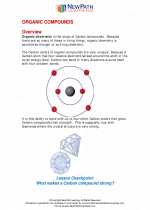
 Worksheet/Answer key
Worksheet/Answer key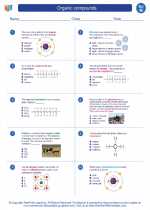
 Worksheet/Answer key
Worksheet/Answer key
 Worksheet/Answer key
Worksheet/Answer key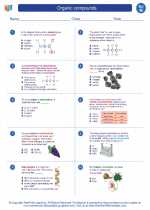
 Vocabulary/Answer key
Vocabulary/Answer key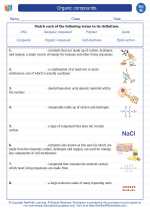
 Vocabulary/Answer key
Vocabulary/Answer key